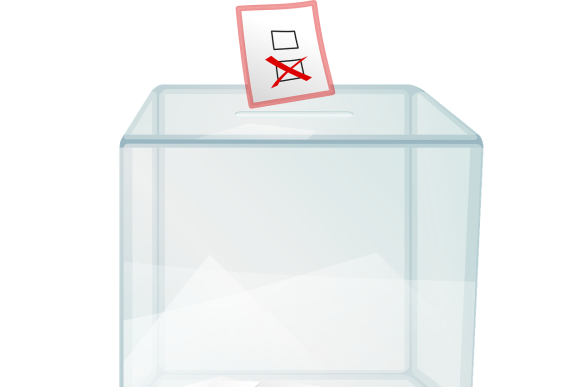
Parliamentary elections
Free, equal and secret elections are the prerequisite for a true democracy.
How does someone become a parliamentary candidate?
Free, equal and secret elections are the prerequisite for a true democracy.
How does someone become a parliamentary candidate?
Months before the elections, party life becomes very hectic. In addition to preparing the election programme, the candidates for parliament have to be selected. The delegates of each party choose their local candidates at constituency meetings and if these candidates win the majority of votes in the constituency, they are given a seat in parliament as a direct candidate. Half of the (regularly 110) members are elected to parliament through the constituencies. The other half are taken from the regional lists drawn up by each party.
One voter - two votes.
In elections in Hesse (and in national elections), the voters can give one vote to their personal favourite in the constituency (first vote) and one vote (second vote) to support the party of their choice. It is not compulsory to use both votes; if only one vote is used, this counts towards the result and the other is classed as invalid. The number of valid second votes determines the number of seats that each party is allocated in the State Parliament. First of all, the candidates elected directly (constituency candidates) are given one of these seats. The other seats are distributed to the candidates on the regional lists in the order in which they appear on the lists.
Why do voters have a first vote and second vote?
No candidates of smaller parties in Hesse have won any direct mandates in the constituencies since 1958. To make sure the supporters of these parties are not completely ignored, voters in Hesse are given a second vote. However, a party, group of voters or an individual independent candidate must win at least 5 % of the votes in order to be given any seats at all in parliament (the 5% threshold). The aim of this is to prevent tiny parties making the work of the parliament difficult or even impossible because of constantly changing majorities.
The state elections on October 8, 2023, resulted in a majority for the CDU and the SPD parties in terms of percentages and seats in Parliament. During the current 20th legislative period, the Hessian State Parliament has 133 Members.
German citizens are allowed to vote if they have reached the age of 18 and have lived and been registered in Hesse for at least three months. In order to be elected to the parliament you have to be 21 years old. Article 75 of the Constitution of Hesse and Sects. 2 to 5 of Hesse Electoral Law outline this is more detail.
The election date is fixed by the State Government.
The returning officer for Hesse is responsible for preparing and conducting state, federal, and European elections in Hesse, as well as referendums and plebiscites.